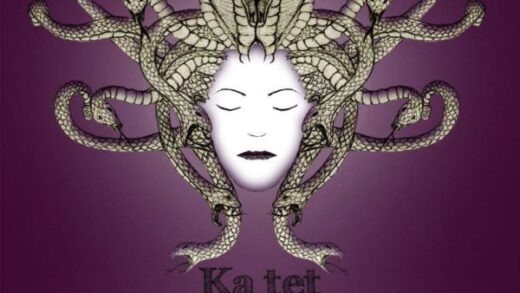Steeped in country music, British pop, surf rock, psychedelic rock, and many other influences, Seattle musician Rusty Reid grew up on the dusty plains of West Texas, a region that has produced many revered singer-songwriters.
West Texas is also where the South meets Cajun country, the Wild West, Native, and Mexican culture and history converge and overlap, mix and mingle as they have for more than a century. Growing up in such a rich place, Reid had plenty of material to work with for his new album, Head to Heart.
The first song, the album’s title track, is an acoustic country pop song. Reid’s emotional, crooning-like vocals remind many of Roy Orbison in parts.
In fact, the same is true for other notable songs like “To Find Me” and “El Dorado” – among two of the strongest tracks from the 15-track album. We love how the guitars swirl around the chorus followed by melodic guitar solos.
It’s no surprise, perhaps, that Orbison, also a native West Texan, is one of Reid’s top musical influences. You can hear it on track after track. However, other Orbison-like songs, such as “Who Do You Think You Are,” miss the mark. The timing and notes don’t sound right.
Yet he bounces back nicely with songs like, “The Story of Now,” which is more suited for country pop radio with its bright melodies and jangling guitars.
Then there are more alt. songs, such as the standout, “I Went Searching,” with funk-like guitars and rhythms wrapped in a dark, yet upbeat, composition. It’s just a track you have to hear. All things being alternative and indie in the cafe, we prefer tracks like this.
Another example is the one-minute industrial/punk jam number “Your Tummy” – a totally different cut from the tone of the rest of the album. But it’s interesting and cool, and other listeners may also be happy he had the courage to record it and put it on the album.
We only wished that he made the song a bit longer, and perhaps some really long tracks shorter, including wonderful experiments like the nearly eight-minute “Sat Cit Ananda.”
Satchitananda, or Sacchidānanda, represents “existence, consciousness, and bliss” or “truth, consciousness, bliss”, is an epithet and description for the subjective experience of the ultimate, unchanging reality in Hinduism called Brahma.
The use of the bongos and sitar set the scene perfectly for a trip back 50 years when Eastern music was regularly mixed with pop and rock music. Other tracks like the psych folk-oriented, “Ancient Stones,” also sound like they beckon the hippie era.
Reid dives into his activist and humanitarian side on other parts of the album, speaking out against injustice and oppression (as he has since he was a youth). These include tracks like the interesting organ-meets-Spanish-guitar instrumentation of “Too Many Poor Theme” and the immersive “The Meaning of Life.”
“There Is A Pleasure in the Pathless Woods” is a folk crossed with a country song that is one of the quieter, lazier songs on the album. The most pop-rock-oriented song on the album is “Passion For Fashion.” It sounds like 80s rock and almost reminds us a bit of The Kinks in far as song structure and sound.
Unlike many albums sent to us, the production level is solid here. But it is also noteworthy that Reid wrote, played and recorded all instruments by himself.
Throughout the album, the listeners can clearly hear the influences of the deep, western south, where many different roads of music genres intersect and intertwine, and have for nearly a century. And yet there are unexpected influences like indie, punk, funk and Eastern music.
There are enough interestingly, different and strong songs on here to make Head to Heart a worthy listen. There are other songs that could have been left off to make the album shorter; 15 songs is a big commitment for listeners nowadays.
Reid has a long record as a musician and singer-songwriter living and performing around the country, including cities like Houston, Austin, Los Angeles, and Seattle.





